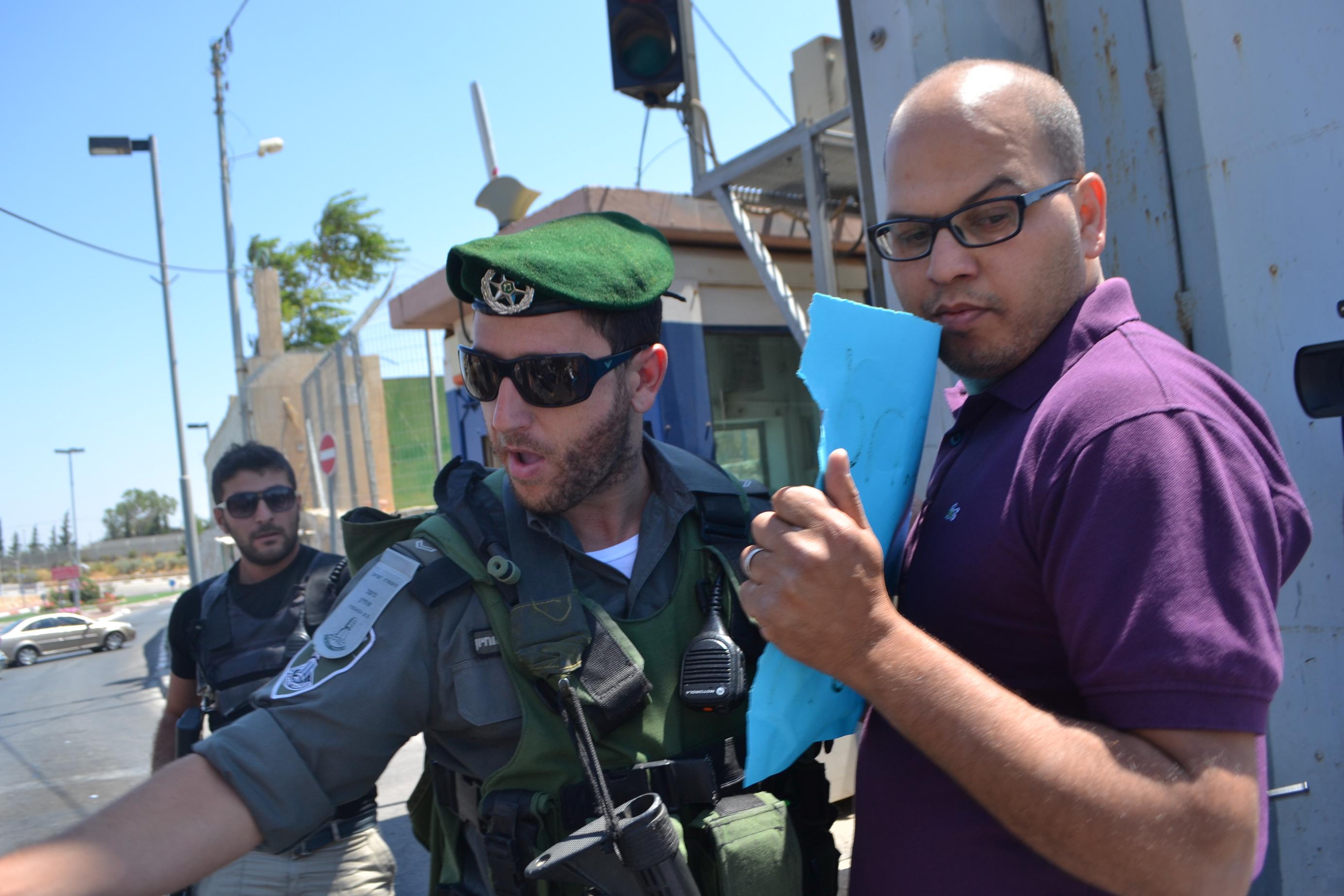Tag: Apartheid
-
Updated: The three Palestinian women activists arrested last week remain imprisoned
21st August 2013 | International Solidarity Movement, Nablus Team | Nablus, Occupied Palestine Update 26th August: On Thursday, August 22, Leena Jawabreh was sentenced to 30 days (one month) in Israeli prisons, and a 1000 NIS fine. On Sunday, August 25, Linan Abu Ghoulmeh was sentenced to 60 days (two months) in Israeli prisons and…
-
“Knocking on the gates of Jerusalem”: demonstration against injustice of Israeli occupation
29th June 2013 | International Solidarity Movement, Khalil team | Bethlehem, Occupied Palestine Today, Saturday 29th June, a group of Palestinian activists demanded access to the occupied city of Jerusalem through the gate in the Apartheid Wall in Bethlehem. Their nonviolent demonstration also aimed to highlight Palestinian opposition to the US Secretary of State John…
-
An Open Letter from Gaza to EU: Do not reward apartheid!
19 August 2012 | Besieged Gaza, occupied Palestine We call on the European Union to challenge and not embrace Israel’s incessant land expropriation and racist subjugation against the Palestinian people. The European Union’s own reports document and supposedly lament Israel’s apartheid policies, yet continues to pursue policies that legitimize them, such as the scandalous upgrade…


